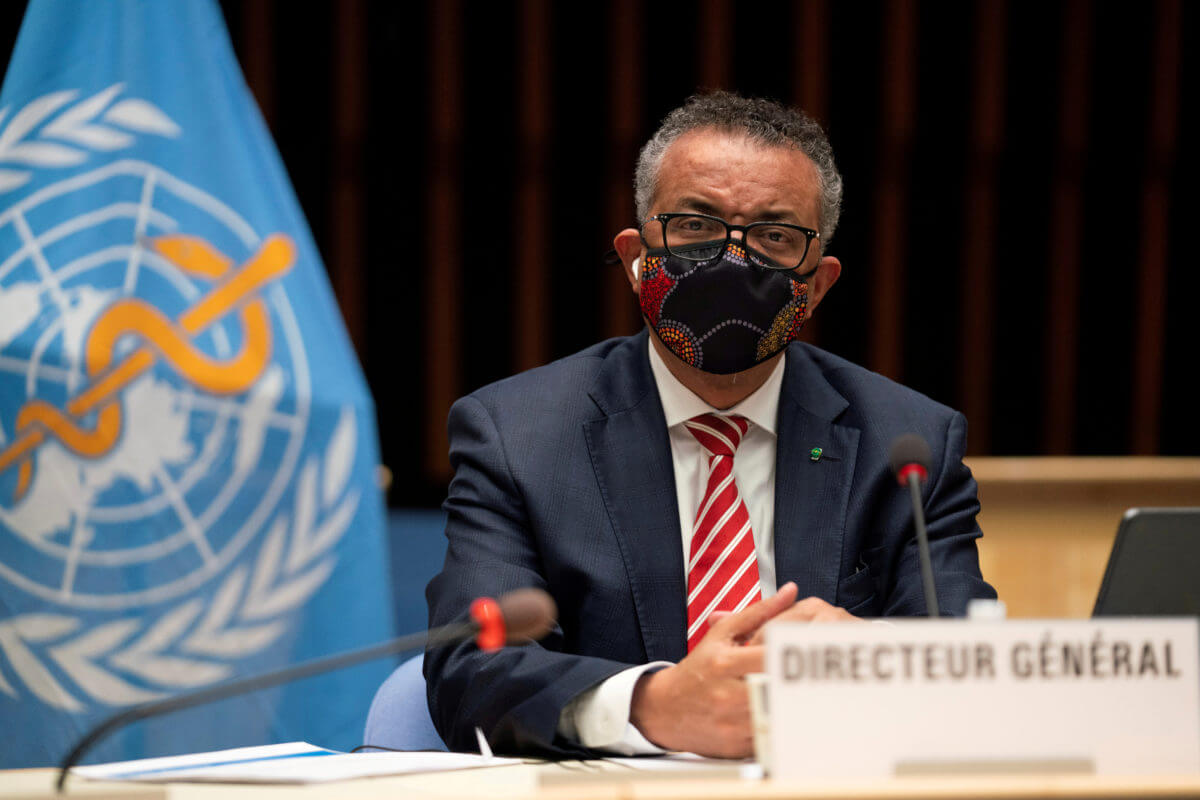The World Health Organisation’s (WHO) mission to China—tasked with examining the origins of COVID-19—has been delayed after Beijing failed to grant permission for international experts to visit the country, WHO Chief Dr. Tedros Adhanom Ghebreyesus said on Tuesday.
“Today, we learned that Chinese officials have not yet finalized the necessary permissions for the team’s arrival in China,” Tedros said during a news conference in Geneva. “I’m very disappointed with this news, given that two members had already begun their journeys and others were not able to travel at the last minute, but had been in contact with senior Chinese officials,” he added. He further noted that he had made clear that the mission was a priority for the institution, and that Beijing had assured him that it was speeding up its internal procedures to facilitate the earliest possible deployment. “We are eager to get the mission underway as soon as possible,” he said.
Ten international researchers, under the supervision of the WHO and the Chinese government, are expected to visit Wuhan, which is thought to be the place where the novel coronavirus SARS-CoV-2 first emerged nearly a year ago. The team will make in-depth “epidemiologic, virologic, serologic assessments” of people and animals to work out how the virus emerged in animal hosts and later spread to humans. The experts will use research conducted over the past year, along with historic data from the SARS-CoV-1 outbreak in 2002 to inform their study.
Though Beijing has vehemently opposed an international inquiry into the origins of the coronavirus, labelling such moves as “anti-China”, it has in recent months (after facing intense accusations of covering up the intensity of the virus) signalled openness to a WHO-led investigation. Last month, Chinese foreign ministry spokesman Wang Wenbin emphasized the country’s position further at a daily press briefing, saying: “China stands ready to enhance its cooperation with WHO to advance the global tracing efforts and contribute our share in our early victory against the pandemic.”
However, despite these claims, Chinese authorities have continually delayed access for independent experts into the country. In addition, there are multiple reports that regional health officials destroyed lab samples in Wuhan, and completely cleared and sanitized of the city’s seafood market, leaving no chance of any cross-examination or study.
Chinese authorities have simultaneously sought to divert attention alternative narratives, alleging that COVID-19 emerged in other countries well before 2020. In November, state-run Xinhua reported on an Italian study that showed lung cancer patients in the European country having coronavirus antibodies in late 2019. Additionally, another state-run outlet, Global Times, suggested in December that China in fact may have been the whistle-blower of the pandemic, given that the virus had emerged in places like the US, Italy, and Spain, before January 2020. Aside from the media, even foreign ministry spokesman Zhao Lijian has pushed the conspiracy theory that the US military may have brought the virus to China.
The WHO, for its part, has promised to focus on the science, rather than assigning blame. “This is not about finding a guilty country or a guilty authority,” Fabian Leendertz from the Robert Koch Institute, Germany’s central disease control body who will be among the team to visit, told AFP in late December. “This is about understanding what happened to avoid that in the future, to reduce the risk.” However, given the highly politicised nature of the trip, concerns still remain about what the WHO team will realistically be able to achieve and how much state pressure they will face.
WHO’s COVID-19 Mission to China Delayed
The deployment, which was due to begin today, was delayed after Beijing failed to grant permission for international experts to visit the country.
January 6, 2021

SOURCE: Christopher Black/WHO/Handout via REUTERS
